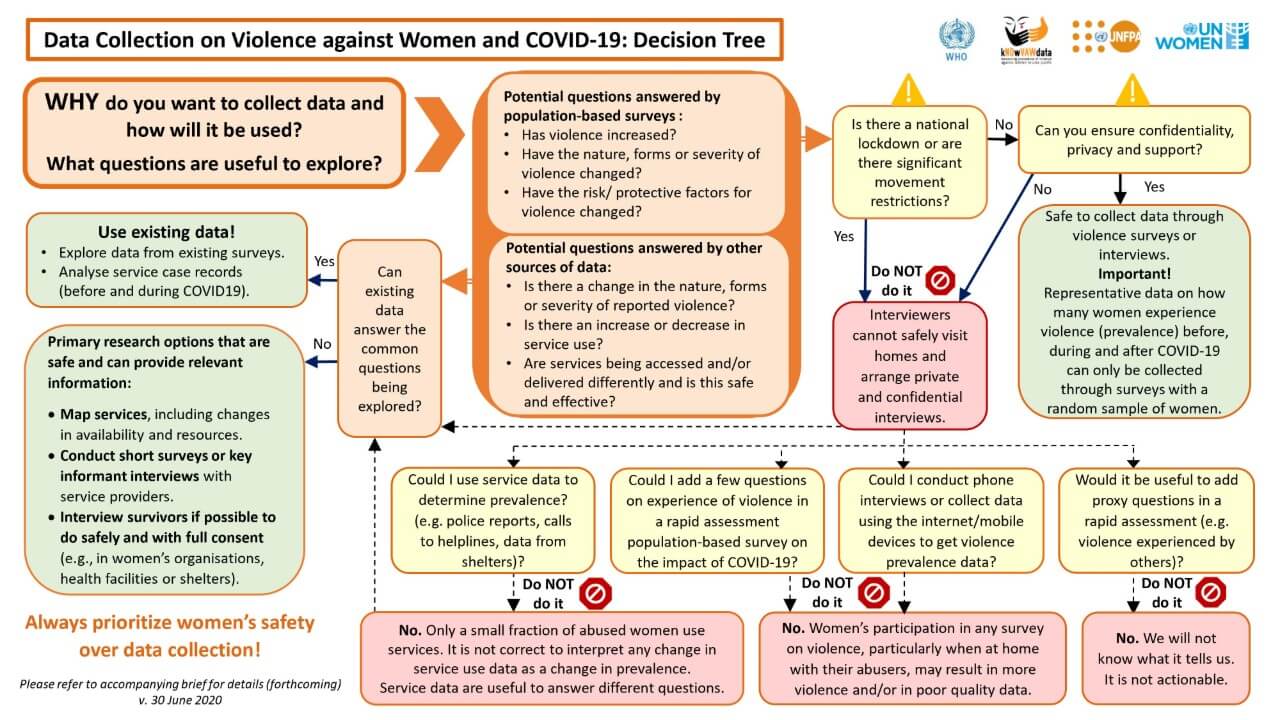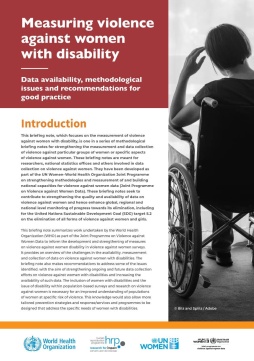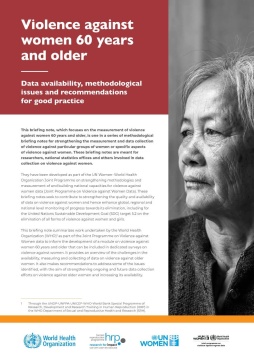Decision tree: Data collection on violence against women and COVID-19
This decision tree helps organizations with violence against women programmes, national statistical offices, policymakers, and researchers decide when and how to best collect data on women’s experiences of violence and their access and use of relevant services during the COVID-19 pandemic.
Restrictions of movement mean women who experience violence are likely trapped at home with their abusers. Interviews with women who may be experiencing violence must be conducted in private to ensure both the quality of the data and the safety of the survey respondent, so it is extremely difficult to collect ethical and reliable data using population-based surveys during this period when men are home due to lockdowns or lost work.
This decision tree guides data collectors through the various considerations, viable options, and alternative data sources for obtaining information without jeopardizing participants’ safety or the data’s integrity. In doing so, it aims to identify data sources and methodologies that are useful for strengthening services and referral pathways for women experiencing violence during COVID-19.









